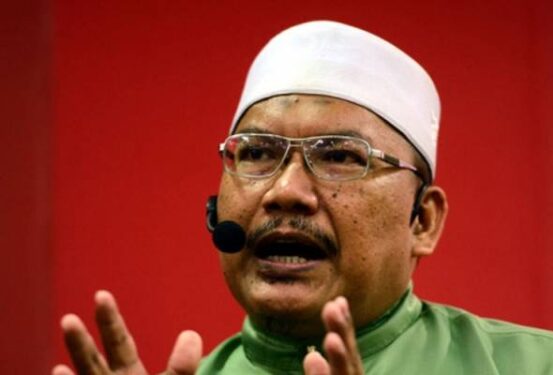PAS: Riding identity politics of race and religion with “alternative truth”

The so-called “Name-and-Shame” online database by MACC might merely play the role of political optics when the petty corruption cases have been publicly shamed while bigger fishes have been extracting national resources like they no longer sense “rasa malu”.
THE identity-politics-ridden statement by the PAS president Tan Sri Abdul Hadi Awang blaming Malaysia’s rampant corruption wounds mainly on non-Muslims and non-Bumiputera has led to him being investigated for incitement and abuse of network facilities under Section 505(C) of the Penal Code and Section 233 of the Communications and Multimedia Act 1998.
It has also rightfully caused one of the broadest resonances not only among other political leaders and industry leaders but the general public.
Reportedly, 28 police reports were filed against the offender of social cohesion and unity.
This forceful reaction in itself should be seen as a very positive development for Malaysia because identity politics should be made to have no future in Malaysia’s socio-economic-political life.
When there is an attempt to “test” whether a social complex system can be manipulated using religion or other forms of identity, it is always important to observe how the system reacts: will it take the bait or will it “increase the degree of uncertainty” to the manipulators?
This is not the first time PAS is trying to test the manipulability of its captive audience. During Bon Odori, they already tried to use the “religion” trump card, an artificially-created issue that Malaysians handled well by demonstrating their conceptual power and unity.
It is unclear whether Hadi have managed to produce the empirical evidence to support his highly provocative statement.

However, in an attempt to defend his explosive remark, PAS central committee member Mohd Zuhdi Marzuki referred to the empirical work by two researchers from Universiti Sains Malaysia that was published in the Asian Economics Papers journal in 2017.
For this reason, the study mentioned above deserves justice.
The study used a dataset from the Malaysian Anti-Corruption Commission (MACC) database, which comprised 449 offenders – bribe-givers convicted over five years from 2010 to 2014 (the early period of Datuk Seri Najib Razak’s administration).
This was the MACC database, formerly known as the Name-and-Shame online database created in line with one of the goals under Najib’s “Government Transformation Programme” of creating “the region’s most detailed database of corrupt offenders”.
The main research question for the two authors was to identify the factors likely to influence the size of bribes which has a direct correlation with the negative impact on the nation (in the form of a greater waste of corporate resources, lost government revenues or greater misallocation of economic resources).
More importantly, in the highest standards of academic writing, the authors also clearly stated the study’s limitations related to the dataset’s specifics and warned that any findings drawn from this dataset cannot and should not be used to make any inferences to the entire population of Malaysia.
The reason for the above is because this data sample was not drawn randomly from Malaysia’s population.
Therefore, there could be some systematic (non-random) processes involved in making some kind of individuals more likely to be included or excluded from it, or in other words, inherent selection bias.
Specifically, the dataset did not include several groups: those who did not engage in bribery, those who did but were not caught, and those who did and were caught but were not convicted.
All of this makes the generalisation of findings to the Malaysian population impossible.

